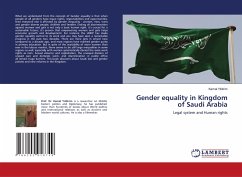Page 1 opens with this turn: "Filipina domestic worker, employed in Riyadh: 'Really they are good to me. If I say I need rest, they give me rest.' [And if they were not so good to you, if you would have some problem with your employer, where would you go?] 'Madam, I cannot go anywhere, I am not allowed to go outside. I cannot go to the embassy. I will just cry in my room and pray.'" This book explores the situations and possible conflicts faced by the worker far from home, having signed a contract written in a foreign language, her passport held by her employer, and with limited power to be a witness in court. DOMESTIC WORKERS IN SAUDI ARABIA AND THE EMIRATES is a new socio-legal study of pressing questions of human rights, contractual consent, transnational markets, and social policy: ¿ Which factors influence the emergence and character of conflicts in the Kingdom of Saudi Arabia and the United Arab Emirates between domestic workers and their employers, the social and legal norms to which both parties refer, and the related imbalance of power? ¿ In what way and to what extent do domestic workers and their employers refer to Islamic, customary, contractual, and formal legal norms? ¿ Do conflicts concern disagreement over norms, or disputes regarding behavior contrary to the norms upon which both parties agree? ¿ Which factors influence the norms to which both parties in conflicts refer? ¿ Which party is able to enforce its own norms or to act contrary to norms on which both parties agree, and which factors influence the balance of power? Vlieger explores such questions by using a grounded-theory methodology of extensive field research and revealing interviews with workers, employers, employment agencies, human rights organizations, and governmental officials. She exposes the dilemmas of the people and institutions affected. Finally, she proposes pragmatic solutions to address the most excessive vulnerabilities and imbalances. Her book is supported with scholarly research - but accessible and interesting to the general reader, as well as to academics, journalists, and human rights activists.








